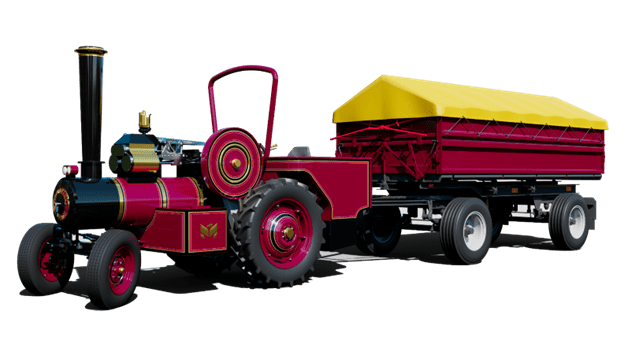Mackwell & Co. – Empowering energy sovereignty with advanced steam engines
Mackwell & Co. of Christchurch was established in 2016 by Founder Sam Mackwell. The company’s purpose is to “empower energy sovereignty” with a focus on energy resilience and fossil-fuel-free transport.
Mackwell realised the two concepts needed to address this are the use of accessible and low value biomass as fuel, and a technology that can safely and cleanly convert this to useful work without relying on extensive infrastructure.
The Mackwell A35 features a unique biomass fired water tube boiler that is compact and responsive enough for use in transport as well fixed shaft power or electricity generation. The A35 traction engine is designed for horticultural and small farm towing up to seven tonnes at 40 km/h, and the same boiler and engine will be produced as a 26kW generator set offering up to 180kW of heat.
Once this concept is proven in the market the design will be scaled to 600kW for industrial and marine use.
Mackwell & Co. technology has shown to have a number of other applications. Earlier this year Mackwell partnered with Biocare Pty Ltd. to design and manufacture four large combustion chambers for a project in Kangaroo island which is set to be one of the largest biochar projects globally.
Discussions are now underway with New Zealand forestry operators to use large steam engines to directly drive equipment such as disc chippers. The A35 has attracted five pre-orders for businesses including portable sawmills and essential oils distillation.
Customers can expect more than 35% in overall cost savings where replacing diesel engines, and a 96% reduction in CO2 emissions. Small engines are suitable for manual fueling, and larger applications will require a mechanical feed system to maintain the 2.5kg/kWh input requirement.
Mackwell engines are of additional value where heat is needed, such as hydronic underfloor heating or food processing. In this way Mackwell engines go beyond traction to compliment a range of renewable energy systems, but without the need for expensive storage or distribution.
The development of a unique hardgoods product continues to challenge Mackwell in many ways. The small A35 engine was chosen as a technically viable starting point for the six engineering staff to deliver, with all design in-house and manufacturing shared with local businesses.
However, running a workshop, continually training staff in a ‘new’ field, and the effects of Hofstadter’s law on project deadlines are real challenges familiar to all manufacturers. The result is a need for significant capital investment to deliver each prototype and scale it to production.



